Apple has found itself in the midst of an unexpected controversy this week after it was revealed that the iPhone maker bars laborers with recent felony convictions from working on its new corporate campus, a practice that may be unusual among private companies, but is not without precedent.
Construction workers who have been convicted of a felony within the past seven years are banned outright from the project, according to the San Francisco Chronicle, while those whose convictions are over seven years old are allowed. If the worker has been charged with a felony but not yet convicted, their eligibility is evaluated on a case-by-case basis.
This policy, which was apparently implemented in January, has reportedly affected "fewer than five" workers.
Labor leaders have panned Apple's approach, calling it "disturbing" and "antithetical to all the work that so many have been doing in recent years to lower California's recidivism rate." Others, like Calif. State Sen. Mark Leno, acknowledge that there are some situations in which past legal troubles might matter, but call on Apple to relax its restrictions in this scenario.
"There are certain positions where there is some nexus between the crime committed and the position offered. Construction does not appear to be one of those," Leno said. "In this situation, I would strongly suggest that this policy be changed."
Apple has long been known as one of the most secretive companies in the world, perhaps more so even than defense contractors. While prohibiting felons from construction employment may seem unusual for a company like Apple, it's actually a common practice for the likes of Boeing or Raytheon.
Many federal construction contracts, or contracts for private corporations working on behalf of the government, have even more stringent requirements. They often stipulate that a federal security clearance is a prerequisite — Â while this does not automatically disqualify applicants with felony convictions, they do face a much steeper path to employment.
Numerous examples of similar hiring practices can be seen on online job searches, particularly those that cater to individuals who already hold clearance. This posting from Caddell Construction, for example, seeks workers with "a minimum secret security clearance" to take on duties including concrete pouring, asphalt paving, excavation, remodeling, roofing, metal building construction, ceramic tile and flooring, plumbing and sewer repair, or landscaping.
That Apple has adopted this stance should not be a surprise to anyone who follows the company — its director of security operations is a former FBI special agent, and its software security chief spent years as a cryptologist in the U.S. Navy before joining the NSA.
Campus 2 is designed to "achieve the security and privacy required for the invention of new products by eliminating any public access through the site, and protecting the perimeters against trespassers," the company wrote in planning documents, naming security as one of its primary objectives.
Apple's plans for the new campus even include strategically-placed trees and high earthen berms around the perimeter — Â topped with security fencing and cameras — Â designed to not only secure the area, but to block any view of the buildings from public property. Apple security personnel already patrol the fence line around the clock, a practice that will continue after Apple moves in.
In an age where transmitters are small enough to be hidden in a cotton swab, one of the world's most security-conscious companies is simply treating the cement foundation of its new headquarters no differently than the innermost sanctum of its product development labs.
 Sam Oliver
Sam Oliver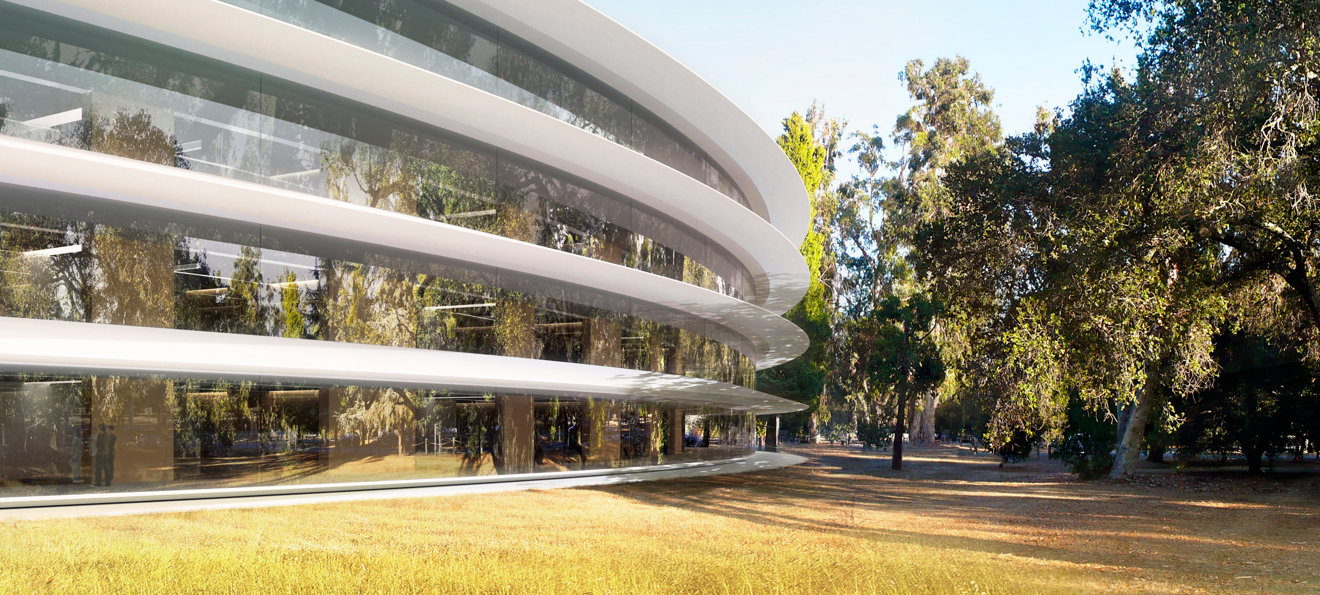
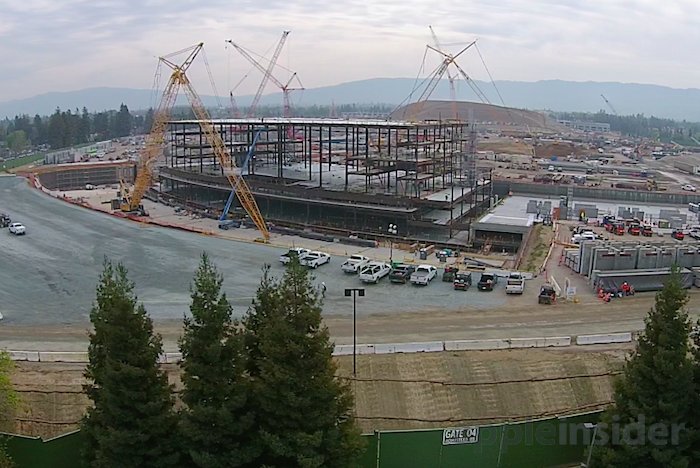







-m.jpg)





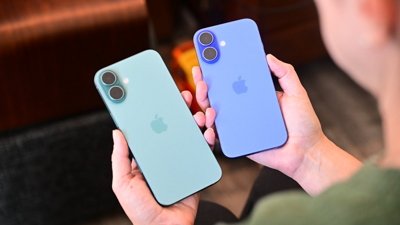
 William Gallagher
William Gallagher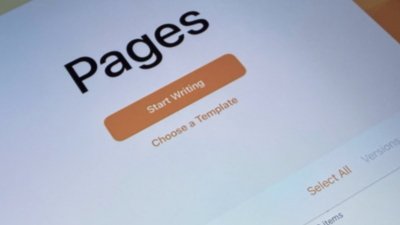
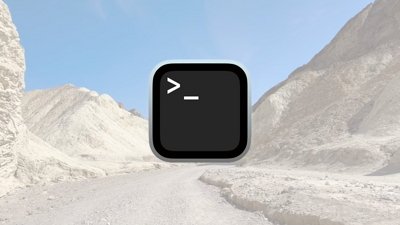
 Chip Loder
Chip Loder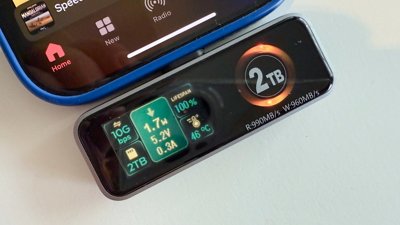
 Mike Wuerthele
Mike Wuerthele
 Malcolm Owen
Malcolm Owen

 Amber Neely
Amber Neely


-m.jpg)






77 Comments
Remembering the US embassy in the USSR (19 Tchaikovsky Street.) and previously, "The Thing" http://en.wikipedia.org/wiki/The_Thing_(listening_device)#Use_in_espionage
Remembering the US embassy in the USSR.
Wouldn't be surprised if Apple sweeps for bugs continuously during the construction process.
Wouldn't be surprised if Apple sweeps for bugs continuously during the construction process.
I'd actually be surprised if they didn't.
I love the manufactured, contrived outrage from this "controversy", and the deserate attempts to define it as some sort of dicriminatory hypocrisy on Cook's part. Like the trash article below, as an example, where the author purposely equates felons and criminals in order to give an exaggerated stat:
http://pando.com/2015/04/05/as-tim-cook-criticizes-indiana-apple-imposes-labor-discrimination-in-its-own-backyard/
Why does the richest company in the world not have a right to filter out felons on the most important construction project in its history- especially when there's a shitload of non-felons who can also use the job?
The last place I worked out didn't hire felons either and if you were charged with a felony, you usually were fired. I understand that some felons regret what they did and are model citizens after being released from jail but I would bet the vast majority of them never learn and are very difficult to trust. Yes, I'm generalizing, but how many of you are willing to take a chance hiring a known felon to work on your house?